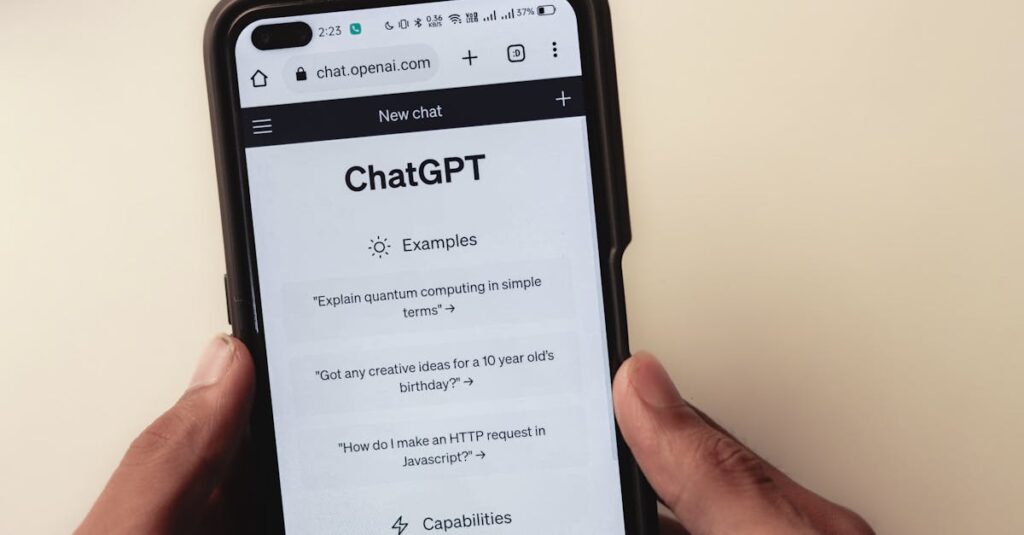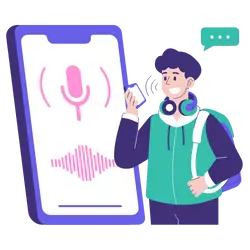The Dawn of a New Search Era
Remember the first time you used Google? It was magical, right? You typed in a question, hit “enter,” and voila – answers appeared before your eyes. Fast forward to today, and search engines have become a household staple. But what if we told you this era of search is about to undergo a major transformation? Enter AI-powered search engines. These engines promise to change the way we find information, making searches faster, smarter, and more personalized than ever before.
But how exactly will AI reshape the search engine landscape? Is it all about convenience, or is there more to it? Let’s dive into the exciting future of AI-powered search engines and explore how they will impact our digital lives.
1. Personalized Search: The End of One-Size-Fits-All
Let’s be honest, traditional search engines aren’t perfect. The results they show us are based on a set of algorithms designed to rank pages by keywords, backlinks, and other factors. But these algorithms often fail to understand context. For instance, if you search “Apple,” are you looking for the fruit, the tech company, or maybe the record label? Traditional search engines tend to make their best guess, and more often than not, that guess doesn’t match our intention.
AI-powered search engines, on the other hand, are designed to understand *you*. They don’t just process the words you type in, they learn your preferences over time. Take Google’s AI-based assistant, for example. It already knows where you live, what your favorite foods are, and even your search history. In the future, AI search engines will integrate more deeply into our digital lives, offering a level of personalization that traditional engines simply can’t match. Your search results will be tailored to your interests, habits, and even your emotional state (yes, seriously). Imagine searching for a new recipe and getting results based not only on your past searches but also your mood or dietary preferences. AI will take personalization to the next level.
2. Voice Search: A Seamless, Hands-Free Experience
It’s 2025, and you’re walking down the street. You don’t pull out your phone, type a question into Google, or even click on a search result. Instead, you simply ask your smartwatch, “What’s the best restaurant nearby?” And within seconds, a list of personalized suggestions pops up, complete with menus, reviews, and even wait times.
Voice search has already become mainstream, thanks to virtual assistants like Siri, Alexa, and Google Assistant. But as AI-powered search engines evolve, voice search is poised to become even more intuitive. It’s no longer just about reading a few words on a screen. AI will understand context, tone, and even sentiment in your voice, providing search results that are more relevant and natural. Instead of giving you a list of results, AI will provide concise, conversational answers tailored to what you really need. This could revolutionize everything from shopping to travel planning, making search feel more like a chat with a helpful friend.
The Rise of Conversational Search
With AI, we won’t just ask a question and get a list of links. We’ll engage in actual conversations. Imagine asking your AI assistant, “What’s the weather in Paris this weekend?” and receiving a detailed reply, complete with suggestions for outdoor activities, museum visits, and even local events happening while you’re there. This is the future of conversational search, where the engine doesn’t just answer, it understands your needs in depth, offering a fluid, back-and-forth exchange that feels much more natural than today’s search results.
3. Visual and Image Search: Seeing is Believing
So far, we’ve mainly talked about text-based searches. But let’s face it, sometimes words just aren’t enough. Whether you’re shopping online or looking for inspiration, we often turn to images to help us communicate our needs. AI is now stepping in to make image searches smarter and more efficient.
Tools like Google Lens are already using AI to allow users to search for products, identify landmarks, or even translate foreign text simply by taking a picture. The next phase of this technology will make visual search even more immersive. Imagine using an AI-powered search engine to snap a picture of a piece of furniture you like in a store. The engine would instantly pull up similar products from a variety of retailers, compare prices, and even recommend where you might get the best deal. And don’t forget about augmented reality (AR), in the future, you could view how a piece of furniture would look in your home just by pointing your phone’s camera at the space. It’s no longer just about finding information; it’s about *experiencing* it in ways we haven’t yet imagined.
The Role of AI in Visual Search
AI is set to make image recognition more sophisticated, allowing it to understand not just what’s in the image, but also the context of the image. For example, you could take a picture of your garden and ask the AI-powered search engine to identify plants, suggest gardening tips, and even offer local stores where you can buy supplies. This will unlock a whole new world of possibilities for both consumers and businesses alike.
4. The Ethical Implications: AI Search Beyond Convenience
While the future of AI-powered search engines looks bright, it’s not without its challenges. One of the major concerns is privacy. As AI learns more about us, it also collects more data about our habits, preferences, and even our emotional states. The question then becomes, who owns that data? How can we ensure that AI systems are not just used to sell us more products, but to protect our personal information?
Another challenge is bias. AI systems are only as good as the data they’re trained on. If that data reflects biased viewpoints, the search results we get could be skewed in ways we don’t even realize. As AI becomes more integrated into search engines, we’ll need to ensure that these systems are built to be fair, transparent, and ethical.
Conclusion: Embracing the AI Revolution
The future of AI-powered search engines is incredibly exciting. From personalized results to voice-activated searches and smarter image recognition, AI is changing the way we interact with the digital world. However, this shift also brings new challenges, particularly around privacy and ethics. It’s up to us to ensure that as we embrace these new technologies, we also push for responsible, ethical use of AI.
So, what can you do now? Stay informed. As AI continues to evolve, it’s important to stay aware of the changes happening in the digital world. Keep an eye on new features and updates from your favorite search engines, and be sure to take advantage of the personalized search options that will soon become mainstream. The future of search is coming, and it’s going to be a game-changer.



